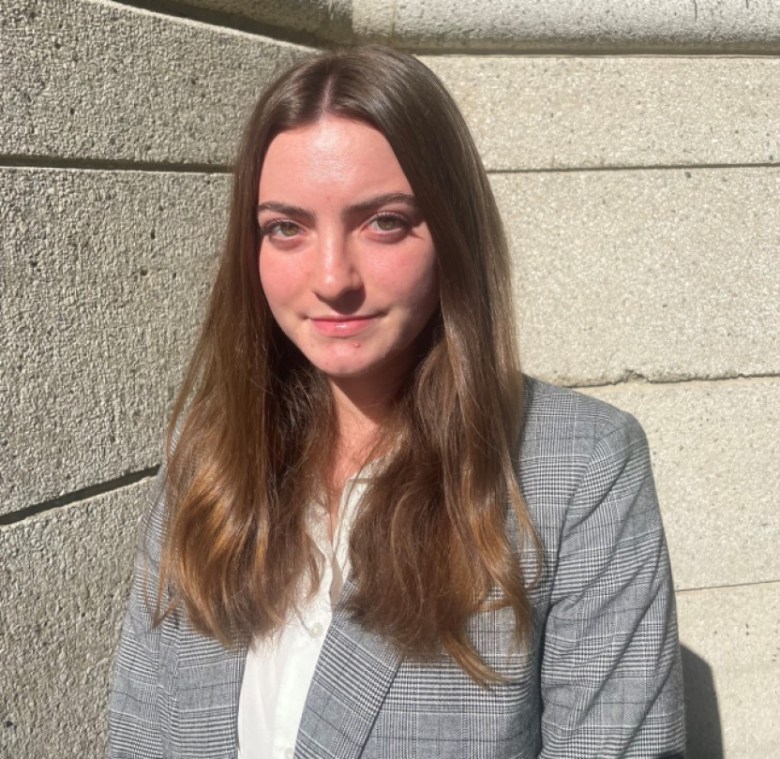
I’ve spent the past few years stewarding collaborative projects between the Center for Public Integrity and local newsrooms. These partnerships have expanded the depth of our reporting and strengthened our ability to reach audiences — and, we hope, offered equal value to our partners.
But that’s not a simple matter, or a safe assumption if you don’t put in the work.
As our mission shifted to focus on investigating inequality, we made a pointed effort to diversify our collaborative network. I’ve spent a considerable amount of time grappling with the question of how we, a national investigative newsroom, can ensure equitable partnerships with local newsrooms serving communities of color. I believe that the newsrooms we work with should benefit mutually from the collaboration, whether by enhancing reporting capacity, growing their audience or expanding their budget.
To figure this out collaboratively, we convened journalists from Baltimore Beat, The Kansas City Defender and Centro de Periodismo Investigativo to explore how to incorporate equity into written partnership agreements. In the second year of our efforts, supported with a grant from the Walton Family Foundation, we discussed the distinct challenges confronted by these newsrooms when collaborating with national outlets.
The clear pathway the group identified: Before finalizing an official agreement, partners must build the relationship and be transparent with each other. The memorandum of agreement that comes out of that process should have a clear purpose to create a structure for equity between publishers with unequal access to resources.
Those inequities might include a local partner in an early entrepreneurship stage, with less staff and capital. The local partner may not have the same relationships with national and regional funders — may find, in fact, that funders aren’t giving them an audience or any benefit of the doubt.
As national funders commit more than $500 million into future funding of local journalism through the Press Forward initiative and other efforts, we hope that more thoughtful partnerships help ensure small news organizations serving communities of color have a seat at the table and are treated equitably.
The conversations and brainstorming sessions we held with our partners helped us understand the most immediate and specific needs at the local level and how we can all work together to achieve specific goals.
Here’s what we heard from our local partners about laying the foundation for an equitable partnership:
- Understand each partner’s contributions: In every collaboration, each participant has something valuable to teach the group. Don’t make assumptions about what a partner can or can’t contribute. For instance: While we may lead certain projects, my newsroom regards all participants as equals. We try hard to avoid a paternalistic approach.
- Set expectations: It is crucial to the success of a partnership to have clear goals and expectations and to address areas where collaborators’ needs may not align. Determine early on who is responsible for what.
- Establish mechanisms for mutual accountability: What happens when the partnership isn’t going as planned? Set clear parameters on how each collaborator will resolve conflict and when to call it quits.
- Gather feedback: Throughout a collaboration, plan times to gather feedback about what’s going well, what needs to change, what has been accomplished and what’s to come.
Are you really getting to know your partner?
Our partners shared some negative experiences with larger national outlets seeking access to their audiences, assuming their credibility in communities of color is all they have to offer. That’s untrue and offensive.
During our time together, we all participated in an asset-mapping activity, illustrating one small but impactful approach to tackling this challenge: What do we each bring to the table in a partnership, and what are we seeking from it? All newsrooms should be able to map that out before joining a collaboration. And they should also take the time to learn about the assets their partners have. This is a good starting place, hopefully leaving no room for assumptions.
At our collaboration summit in September in Washington, D.C., Carla Minet, the executive director of Centro de Periodismo Investigativo, shared the importance of ensuring partners are clear about each other’s internal culture. Clarity around processes like deadlines and editing are important, she said. The ideal collaboration includes equal control of project timelines, which allows journalists to be more thorough and thoughtful, Minet said.
Centro de Periodismo Investigativo is a nonprofit investigative newsroom that’s the only news organization of its kind in Puerto Rico and the Caribbean. It’s received dozens of journalism awards since its founding in 2007.
The Kansas City Defender, launched in 2021, was founded as a response to the Black Lives Matter movement. Staffers put Black liberation at the core of their work. They have a strong Black youth readership, and their work is produced by young journalists, some who proudly consider themselves activists. KC Defender maintains these values in all work and partnerships, even though they believe that most large mainstream media outlets may not be ready to collaborate with a publication that explicitly supports and advocates for a cause.
That’s another lesson we drew from our conversations together: Mission alignment is a high priority in partnerships. It’s important to spend some time in the early stages to go over values. What is your newsroom unwilling to compromise on? What does your potential partner hold onto firmly as a part of their editorial identity?
The Baltimore Beat operates with a small staff of just three full-time people, yet extends its impact beyond traditional journalism. By prioritizing community engagement events and connecting with overlooked youth through hiring young Black Baltimore natives, the publication fills a void left by larger outlets like The Baltimore Banner and The Baltimore Sun.
Lisa Snowden, its editor-in-chief and co-founder, manages the day-to-day operations. During our time together, she said there’s little time for planning or participating in collaborative projects with national outlets. If organizations want to create inclusive and accessible collaborative projects or networks, we must address that challenge: So many local outlets have limited staff capacity.
Public Integrity’s audience team has led the effort to bring more newsrooms and reporters into our investigations. With the support of editors and reporters, we create reporting toolkits as a way to remove barriers to partnerships. These guides give access to detailed data breakdowns, a summary of our findings, public records resources and ideas for reporting angles to dig locally into the issue. To further support reporters, we host open office hours for collaborative brainstorming and problem solving. We continue to refine this model to ensure that publications with differing capacities and skill sets can participate.
Snowden’s insights on the limitations of a small staff prompted the idea of enhancing transparency around project investment in our toolkits. My new goal is to specify the time, staffing and financial commitments required to do a particular project, or how that can vary depending on the approach a newsroom takes.
But the bottom line is that without proper funding, vital local outlets struggle to employ staff, hindering their participation in collaborative investigative projects despite serving a critical community need.
As a Baltimore City native, I was extremely pleased to see the Pivot Fund’s $150,000 investment into Baltimore Beat.
It’s no secret that media outlets serving and led by communities of color have long faced financial challenges. A 2023 study by Meredith D. Clark and Tracie M. Powell emphasized that the present day is no exception. We must bridge this resource gap. Our partners expressed difficulty feeling like equal collaborators when faced with a newsroom possessing greater financial power. These outlets are open to working with investigative newsrooms, but not without proper funding. Training alone cannot ensure sustainability and growth.
That’s why I believe it’s the responsibility of well-resourced newsrooms to advocate for equity in funding.
Here’s a road map for equitable partnerships:
Step 1: Define the Purpose
Identify together the reasons for collaboration. What gaps will this partnership address? Why is Partner X the ideal choice?
Step 2: Map the assets
Assess what each newsroom brings to the collaboration. Identify gaps and determine what can be learned during the process.
Step 3: Be transparent about funding
Address funding transparently. Is this project grant funded? How is the funding allocated between the newsrooms? Do both newsrooms have ties to the funder? If not, explore opportunities for joint fundraising. Meanwhile: Acknowledge power dynamics and equity issues, especially regarding funding disparities in newsrooms of color. Openly discuss and address these concerns.
Step 4: Clarify Roles and Accountability
Determine specific responsibilities for smooth collaboration. Establish an exit plan in case things don’t proceed as expected. Clearly outline goals, timelines and the authority to terminate the partnership if needed.
Step 5: Document Details
Write down the important details. Specify meeting schedules, communication methods, deadlines, task assignments, financial responsibilities, conflict resolution processes, decision-making authority and contingency plans. A verbal agreement isn’t sufficient; draft a memorandum of understanding tailored to the collaboration’s unique needs. An MOU need not be a legally binding contract, but consulting a legal advisor for input if legal resources are available is always a good idea. Keep in mind that the MOU can be flexible to accommodate the needs of all parties.
The post What publishers of color taught me about building equitable collaborations appeared first on Center for Public Integrity.
This post was originally published on Center for Public Integrity.































